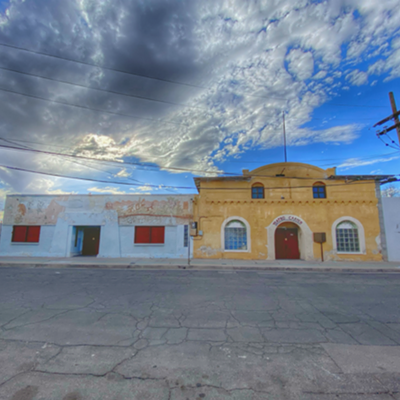In the wake of a legal defeat in the Arizona Court of Appeals, Planned Parenthood Arizona announced last week that it would be shutting down abortion services at seven locations in rural and metro Arizona.
Planned Parenthood Arizona will now only provide abortions at one location in Tucson and two in Maricopa County.
Bryan Howard, the CEO of Planned Parenthood Arizona, said the organization had no choice but to limit abortion services to the three locations after the Arizona Court of Appeals struck down an injunction that prevented a 2009 law from going into effect.
Women in rural Arizona will now need to travel to Maricopa County or Tucson, even if they wish to terminate their pregnancies through the use of Mifeprex, a two-pill procedure that essentially induces a miscarriage if taken between the sixth and ninth week of pregnancy, Howard said.
As a result, more women may be forced to choose a surgical abortion because they won't be able to take a pill after the ninth week of pregnancy, according to Howard.
He explained that instead of being able to visit a clinic in Flagstaff or Yuma, a woman would have to be seen in the Phoenix or Tucson area. That means she might have to take time off from work, borrow a car or get child care.
"By the time she has all of those pieces of the puzzle put into place, she will have no choice but to have surgical abortion, when she might have preferred a medical abortion," Howard said. "There are about 235,000 women between their late teens and 45 (years old) who live in outlying counties in the state, and we were the only women's health provider who also provided abortion services. But we just don't have the professionals to provide them."
The 2009 law, known as the Abortion Consent Act, had a number of new regulations designed to restrict access to abortion, including a requirement that only doctors could perform procedures.
Planned Parenthood had sued over the new law and a Maricopa County Superior Court judge had issued an injunction to prevent it from going into effect. But earlier this month, the Arizona Court of Appeals reversed that decision and lifted the injunction, so the new restrictions will now become law while the underlying case continues to proceed in the lower court.
The legal situation is complicated by a 2011 law that treats abortions done via medication under the same regulations as a surgical abortion.
Howard says it makes no sense to have the same requirements for the medical abortions because the process is significantly different; women don't need a post-surgery recovery room after taking a pill, for example.
The abortion-by-pill process, which was approved by the FDA in 2000, now accounts for about half of the 10,000 abortions that Planned Parenthood provides to Arizona women annually.
Planned Parenthood Arizona had sued to block the 2011 law from going into effect, using similar arguments that it had raised in the 2009 case.
But given the appellate court ruling, Howard said Planned Parenthood Arizona would withdraw its legal effort to pursue an injunction to keep the 2011 law from going into effect.
While Planned Parenthood Arizona will continue to fight the underlying cases at the Superior Court level in Maricopa County, the organization is likely to appeal the appellate court's ruling on the injunction to the Arizona Supreme Court.
While all those legal machinations play out, Planned Parenthood Arizona is now forced to reduce access to abortion from 10 locations in Arizona to just three.
All of Planned Parenthood's 14 Arizona locations would remain open to provide annual exams, birth-control services, cancer screenings and treatment for sexually transmitted disease, although Howard said there is some talk about merging centers and expanding hours at the merged center.
"With the new restrictions, prevention becomes all the more important," Howard said.
Cathi Herrod, the president of the religious-right organization Center for Arizona Policy, was delighted by the news that Planned Parenthood was shutting down abortion services in rural Arizona.
"Planned Parenthood has chosen to end their services rather than raise the standard of care they provide women to be at the same level as all other medical care in the state," Herrod said in a statement. "For years, life advocates at the Legislature have been saying that Arizona women deserve better than the substandard care Planned Parenthood provides. The fact that Planned Parenthood can't find doctors to work at their clinics is telling. Caring healthcare professionals, particularly doctors, don't want to be a part of an industry that harms women and takes the lives of preborn children."
Howard said that Herrod "doesn't know what she's talking about."
"I think it's amazing that a woman in an organization that doesn't provide any health care services—and never has—wrote the legislation, wrote the fact sheets for the legislators that were the sponsors, and is now attempting to define what constitutes safe, quality health care," Howard said.







